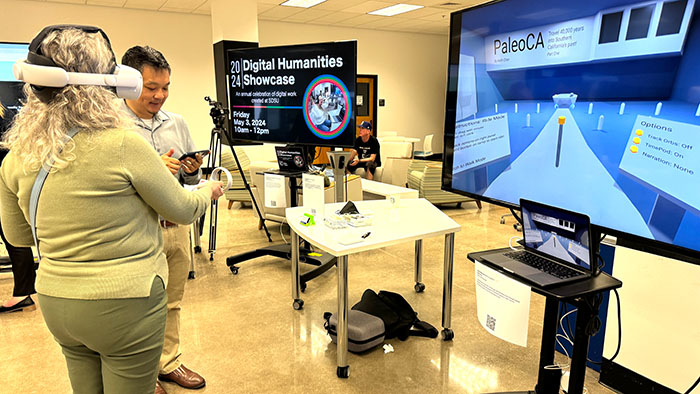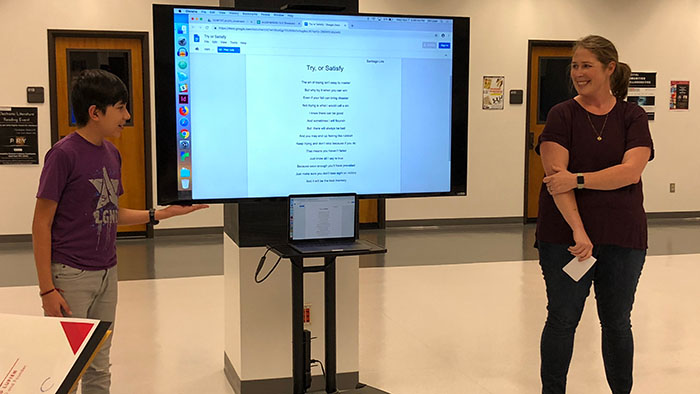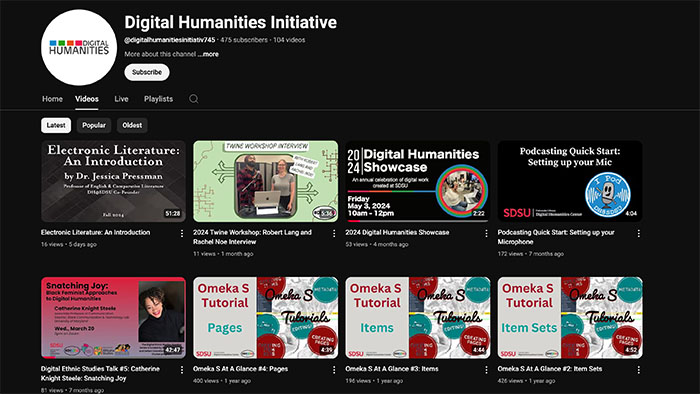Digital Humanities Events
Connecting in a Digital Age
Throughout the year we host scholars, artists, and practitioners from across the country, region, and campus. Speakers working at the cutting edge of Digital + Humanities bring a variety of perspectives, research areas, and disciplinary methods. Events are an opportunity to come together as a community and interact with experts during Q&As. They are also just fun!
Explore our archive of past events on our TeachDH website.
Visit our YouTube Channel for past live streams, performances, and creative events. Sample playlists of previous showcases, presentations, workshops, and tutorials.




